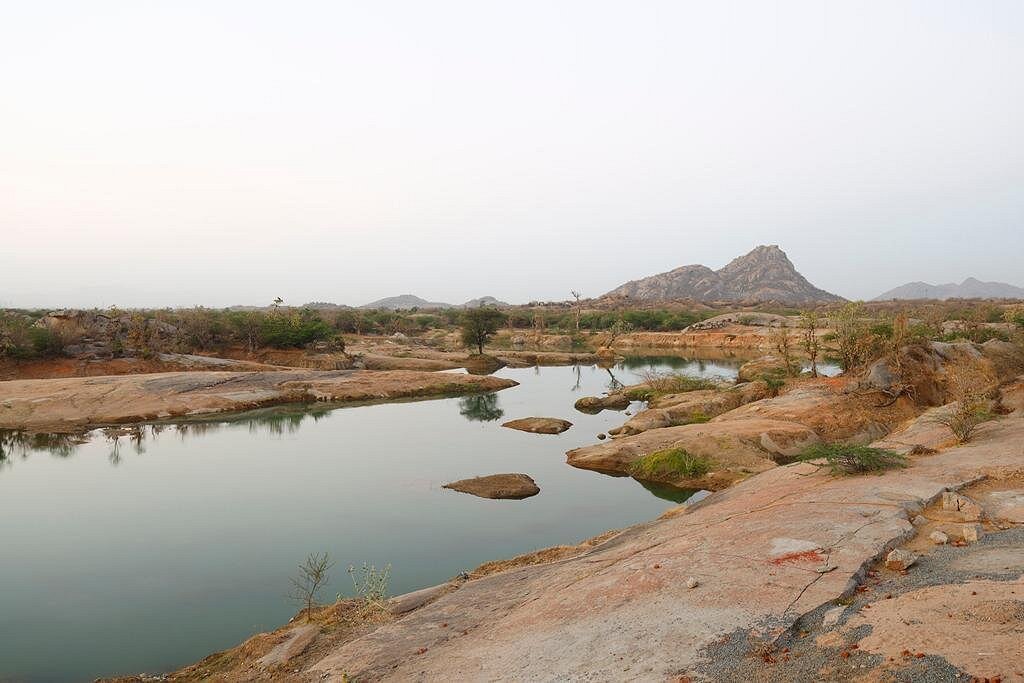Located in the Pali district of Rajasthan, Jawai Bandh is not your typical tourist destination. It is an offbeat paradise known for its stunning granite hills, tranquil dam, and the rare coexistence of wild leopards and human settlements. A lesser-known gem, Jawai offers an unmatched experience of wildlife, culture, and natural beauty, away from the hustle and bustle of mainstream travel destinations.

Exploring the Untamed Beauty of Jawai Bandh
My visit to Jawai Bandh was an experience like no other. The journey began with a breathtaking view of the Jawai Dam, built across the Jawai River. The dam, surrounded by rocky hills, is a perfect spot to witness mesmerizing sunrises and sunsets that cast a golden glow over the serene water. During early mornings, the mist rising from the dam creates an almost ethereal atmosphere.
But what really sets Jawai apart is its unique ecosystem, where wild leopards roam freely in the surrounding hills. I set out on an early morning leopard safari, unsure if I would be lucky enough to spot these elusive cats. But to my surprise, I saw a magnificent leopard resting gracefully on a boulder, blending perfectly with the grey granite rocks. The sight was surreal, and the safari guide shared stories about the local tribes living harmoniously with these wild animals for centuries.
The Cultural and Natural Highlights of Jawai Bandh
- Jawai Dam: The Jawai Dam is the largest in western Rajasthan and a haven for migratory birds, especially during the winter months. Bird watchers can spot flamingos, pelicans, cranes, and various waterfowl here.
- Leopard Hills: The granite hills surrounding Jawai are home to a significant leopard population. These big cats are often spotted resting on the rocks or prowling near the village outskirts.
- Kambeshwar Mahadev Temple: An ancient Shiva temple nestled in the rocky hills, offering a spiritual retreat and panoramic views of the region.
- Dev Giri Temple: Perched atop a hill, this temple is dedicated to Lord Hanuman and provides a bird’s-eye view of the Jawai landscape.
- Rabari Tribes: Interacting with the local Rabari community offers a glimpse into their rich traditions and nomadic lifestyle. Their colorful attire, vibrant jewelry, and deep connection with nature add to Jawai’s charm.
Local Cuisine to Savor
The food in Jawai reflects the robust and earthy flavors of Rajasthani cuisine. Some dishes you must try include:
- Dal Baati Churma: A traditional Rajasthani meal with baked wheat balls, spicy dal, and sweet churma.
- Ker Sangri: A unique dish made from desert beans and capers, cooked with a mix of spices.
- Gatte Ki Sabzi: Gram flour dumplings cooked in a rich yogurt-based gravy.
- Bajre Ki Roti: Pearl millet flatbread, often enjoyed with ghee and garlic chutney.
- Rabdi: A sweet delicacy made from thickened milk, flavored with cardamom and saffron.

Best Time to Visit
The best time to visit Jawai is from October to March, when the weather is pleasant and ideal for safaris. This period also coincides with the migration season for many bird species, making it a prime time for bird watching.
How to Reach Jawai Bandh
- By Air: The nearest airport is Maharana Pratap Airport in Udaipur, about 150 km away.
- By Train: Jawai Bandh Railway Station is well-connected to major cities like Jodhpur and Udaipur.
- By Road: Jawai is accessible via road, with regular bus and taxi services from Pali, Jodhpur, and Udaipur.
FAQs about Jawai Bandh
1. What makes Jawai Bandh unique?
Jawai Bandh is unique due to its natural granite rock formations, thriving leopard population, and harmonious coexistence of wildlife and local communities.
2. Is it safe to go on a leopard safari in Jawai?
Yes, the safaris are conducted by experienced guides who follow strict safety protocols, ensuring a safe and thrilling experience.
3. Are there accommodation options in Jawai?
Yes, Jawai offers a range of accommodation options, from luxurious tented camps to budget-friendly guesthouses, catering to various travel preferences.
4. Can I spot leopards all year round in Jawai?
Leopards can be spotted throughout the year, but the best chances are during the cooler months from October to March.
5. What other activities can be done around Jawai?
Apart from leopard safaris, you can go bird watching, visit local temples, and interact with the Rabari tribes to learn about their culture and lifestyle.
